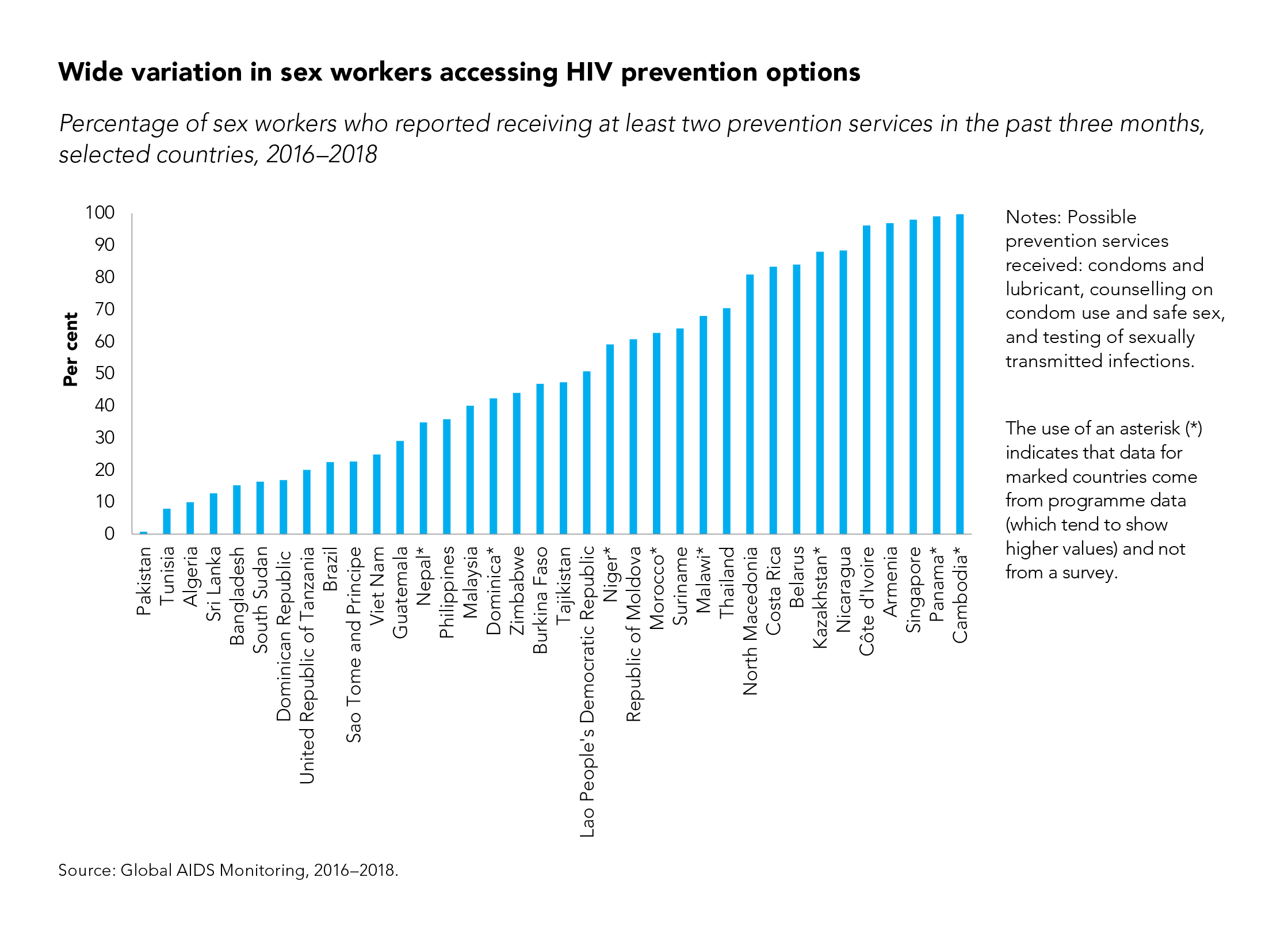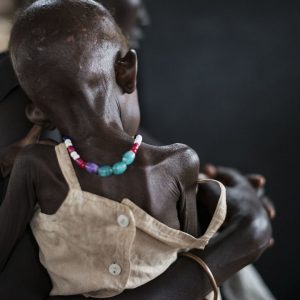The COVID-19 pandemic is already a significant issue in the Dominican Republic. The country reached 100,000 cases by September 2020, and over 250,000 by March 2021, reducing key economic activities like tourism. Consequently, the pandemic has posed financial difficulties for many Dominicans, increasing global poverty rates and reducing healthcare accessibility. Specifically, 40,000 jobs have been lost since March, and the employment rate decreased from 76 percent to 67 percent, which has disproportionately affected informal workers and low-income families. Sex workers, particularly transgender sex workers, are extremely vulnerable to the COVID-19 pandemic due to lockdowns on tourism, increased nightly curfews and HIV-related health concerns. Additionally, many are dependent on charity organizations that are losing money due to the financial burdens of COVID-19.
Sex Work in the Dominican Republic
The Dominican Republic is a hotspot for sex tourism and sex work, which are particularly prevalent in poor coastal cities and commercial areas of the country. The Center for Integral Orientation and Investigation estimates that there are nearly 100,000 sex workers working in the Dominican Republic. Many individuals in the Dominican Republic rely on prostitution for economic survival and social mobility. For example, low-income transgender individuals turn to sex work because they lack legal identity documentation or a birth certificate to be employed at a high-wage job. Additionally, brothels, pimping and the exploitation of Haitian prostitutes are illegal in the Dominican Republic, but sex work involving individuals over the age of 18 is legal. Even so, many Haitian children are forced into sex work and sold for cheap labor, and 80 percent of Haitian female sex workers reported experiencing violence by a partner. A study conducted by the International Justice Mission in 2015 found that one-quarter of sex workers in the Dominican Republic are younger than eighteen years old. Clearly, Dominican prostitution laws are not greatly enforced, and Haitian women and children have been particularly vulnerable to sex work in the Dominican Republic. Furthermore, prostitution comes with significant health challenges for sex workers in the Dominican Republic. Specifically, the HIV infection rate for sex workers in the Dominican Republic lies between 2.5 percent and 12.4 percent, depending on the site of sex work. This number is even higher for transgender sex workers in the Dominican Republic, where 17 percent are HIV-positive.
Impact of COVID-19 on Sex Workers
The COVID-19 pandemic has exacerbated these challenges, and has put Dominican transgender sex workers’ health and financial security in jeopardy. Some Dominican transgender sex workers, like Luna Veras, have reported that their businesses dropped by 80 percent during the COVID-19 pandemic. This is because a strict nightly curfew has been imposed by Dominican authorities, which has disproportionately affected sex workers like Veras, who rely on nights to work. Due to shame and social stigma, there have not been many clients who have sought out sex work during the daylight. Dominican police and officials have also used unnecessary force to impose the curfew, according to video evidence. Specifically, officials have detained 27,000 individuals between 8 April 2020 and 7 May 2020, for failing to socially distance, and have made arbitrary arrests of transgender sex workers. Moreover, due to the high HIV infection rate among transgender Dominican sex workers, many fear for their lives during the coronavirus pandemic. However, sex workers are forced to continue working and jeopardize their health for economic survival. Veras voiced her concerns over the financial and health crises that transgender sex workers are facing, declaring, “I live by sex work. In this time of the COVID19 pandemic, we trans sex workers are in crisis. The economy has stopped.”
Before the COVID-19 pandemic, many sex workers relied on charity organizations like Trans Siempre Amiga (TRANSSA), an organization that advocates for the equity and respect of Dominican transgender individuals, for financial support. However, TRANSSA and other non-profit organizations have also suffered financial losses as a result of the pandemic, and are unable to provide significant financial support to transgender sex workers. Christian Kingsley, a director at TRANSSA, contended that TRANSSA doesn’t “have the means, but we have tried to help them with food and protective equipment against COVID-19— one less thing they have to spend money on” referring to his work registering 600 people for a government assistance program called “Quedate en Casa” which has provided Dominicans with 5,000 monthly pesos to purchase food.
Economic Growth in the Dominican Republic
While the Dominican Republic has experienced strong growth in the last 25 years, it still remains a highly impoverished country, with the national poverty rate projected to rise to 14.2 percent. As a result of the COVID-19 pandemic, Dominican GDP is expected to remain below its potential in 2021 and 2022. Fortunately, this debt is manageable, as improvements in public spending as well as economic recovery will likely return the Dominican Republic’s fiscal deficit to a sustainable trend. However, this does not mean that informal workers, like transgender sex workers, are not continuing to suffer financially.
The Government of the Dominican Republic should consider implementing more financial assistance programs that are geared towards helping informal workers like sex workers, especially given the decreasing employment rate during the COVID-19 pandemic. Dominicans who work in non-traditional settings, like sex workers, are disproportionately disadvantaged by financial assistance programs. For example, the ESAF, a Dominican financial assistance program, gives DOP $8,500.00 (equivalent to 149.20 USD) on a monthly basis, to formal workers. However, Pa Tí, a social aid program for independent workers, only offers DOP $5,000.00 (equivalent to 87.77 USD) monthly. Resolution No. 62-20, which allowed the Dominican Government to declare a national emergency for 25 days, also authorized the Dominican President to: (i) restrict freedom of transit and freedom of association and assembly; (ii) adopt measures to guarantee medical services and provisions; and (iii) adopt measures to support the economic sector, as a way to protect employment and the income of workers. Although section i of Resolution No. 62-20 directs officials to impose social distancing in order to slow the spread of the coronavirus disease, it does not outline specific measures the country will take to support workers who must operate in non-traditional manners or require physical proximity to others in order to operate. Furthermore, while Movimiento de Mujeres Unidas (MODEMU), the sole sex worker union in the Dominican Republic, aims to protect sex workers and provide financial assistance, MODEMU and other NGOs lack sufficient financial resources to make a significant contribution to overturn the suffering of Dominican transgender sex workers’ health and financial challenges.
According to a World Bank study on the Dominican Republic’s projected economic growth as a result of COVID-19, the country will recover in large numbers by 2022 due to the fact that the national debt is sustainable in the long-term, as well as the fact that economic assistance programs are being put in place. But, where is the commitment and priority for Dominican sex workers’ economic recovery? Sex work is work that 100,000 Dominicans live off of, and neglect from the Dominican Government is a threat to sex workers’ lives, financial security and safety. If the Dominican Government is truly a representative democracy that cares for all its citizens, they must equip Dominican sex workers with the proper financial assistance and healthcare to survive the COVID-19 pandemic, a global crisis.






Comments are closed.